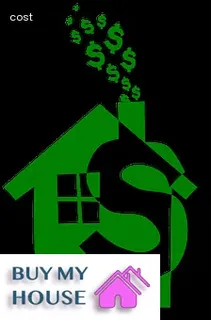Calculating equity in your property is an important step when selling a house. Equity refers to the difference between the value of your home and any remaining mortgage or loan balance that you owe.
To calculate your equity, simply subtract the outstanding balance on your loan from the market value of your house. This will give you an accurate picture of how much money you can expect to receive from the sale of your home.
It's important to remember that any costs associated with selling, such as real estate agent fees and closing costs, should be taken into account when calculating your break-even point. A thorough understanding of your equity will help you determine if it's a wise financial decision for you to sell now or wait until later.

Quitclaim deeds are a popular option when selling a house because they are relatively inexpensive and easy to obtain. However, it’s important to understand the pros and cons of this type of deed before making any decisions.
Generally speaking, quitclaim deeds provide sellers with the ability to transfer ownership without any warranties or guarantees about title quality. This means that buyers are taking a risk in case there are any issues with title after transfer, such as outstanding liens or claims from other parties that may not be disclosed prior to purchase.
Additionally, quitclaim deeds don’t necessarily protect the seller from liabilities associated with the property. As a result, it’s important for sellers to do their research and calculate their break-even point before selling a house using a quitclaim deed in order to ensure they aren’t putting themselves at an undue financial risk.
When selling a house, it is important to consider the mortgage processing fees and tax implications that come with the sale.
Calculating your break-even point requires an analysis of all of these costs including loan origination fee, discount points, appraisal fees, inspection fees, and title insurance fees.
Additionally, you need to factor in any taxes you will incur based on the profit from the sale as well as any local or state taxes that may apply.
Understanding how these costs and taxes affect your break-even point is essential if you want to make a successful sale.

If you want to buy out joint tenants, there are multiple options available to help you calculate the break-even point when selling a house. One option is to use a fixed-period amortization calculator, which can calculate the mortgage balance at certain points in time.
This will enable you to determine how much equity is left in the house and how much you need to pay for the buyout. Another option is to go through a detailed financial analysis of the entire process, including all closing costs and expenses associated with the sale.
By taking into account all costs associated with buying out joint tenants, you should be able to identify exactly where your break-even point lies. Additionally, by evaluating the costs associated with refinancing or renewing the mortgage loan, you can get an idea of whether it would be better financially for both parties involved if one party buys out the other.
Ultimately, calculating your break-even point when selling a house requires careful consideration of all possible options and scenarios so that you can make an informed decision that best suits everyone involved.
When it comes to selling a house, understanding the value of home improvements is essential to calculating your break-even point. Home improvements can add a lot of value to a property, but they don't always guarantee you a return on your investment.
When assessing how much value home improvements can bring to your house, look at factors such as the condition of the market in the area, current trends in house prices, and any upgrades that have been made by other homes in the neighbourhood. Additionally, weigh up whether or not these improvements will be attractive to buyers in comparison to similar houses for sale nearby.
It's also worth noting that some home improvements are more cost-effective than others; for example, adding energy efficient features can often result in higher returns compared with purely cosmetic changes. Ultimately, assessing the value of any home improvement is crucial when calculating your break-even point before selling a house.

The break-even point when selling a house is the difference between what you owe on the mortgage and what you can get for the sale. This figure will be different depending on the amount of money still owed on the loan, any closing costs or repairs that need to be made, and other factors such as market values.
To calculate your break-even point, start by determining the total amount left to pay on the mortgage. Then, factor in any closing costs or repairs that need to be done before selling.
Lastly, compare this number with current market value of similar homes in your area to get an accurate estimate of how much you can expect from a sale. Knowing these figures ahead of time can help you determine if it is worth it to sell now or wait for better timing and market conditions.
When negotiating with lenders for an underwater house, it is important to know your break-even point so that you can make a well-informed decision. A break-even point is the minimum amount of money needed to cover the costs associated with selling a house.
To calculate this, you need to know the total cost to sell the house, including real estate commissions, closing costs, and any other fees associated with selling. Once these costs are determined, subtract them from the sale price of the house.
The resulting figure is your break-even point. It's also wise to factor in potential losses if you have an existing mortgage balance or if there are liens on the property that need to be paid off before it can be sold.
Knowing your break-even point helps you understand how much profit you may potentially make or lose when negotiating with lenders for an underwater house. Additionally, understanding how much money needs to be covered upfront will help you negotiate more effectively with lenders and ensure that you get a fair deal on your underwater home sale.

When selling a house, it is important to understand your break-even point and the associated negative equity percentages. To calculate these percentages, start by determining the current market value of your home.
Then subtract the remaining balance on your mortgage. The resulting difference is the amount of equity you have in your home.
Divide this amount by the original purchase price to calculate your negative equity percentage. For example, if you purchased a house for $250,000 and its current value has dropped to $225,000 with an unpaid balance on the mortgage of $200,000, you would be left with $25,000 of equity in the home.
Dividing this amount by the original purchase price yields a negative 10% equity percentage. Knowing this information helps you determine whether it's better to keep paying down your mortgage or sell and take any losses.
When it comes to determining whose name should be on the deed when selling a house, there are some important things to consider. It's important to understand the concept of break-even point when selling a house.
This is the point at which you have recovered your costs for sale and any capital gains are pure profit. If you own the property jointly with someone else, then both of your names should be on the deed.
When calculating your break-even point, you will need to factor in all sale costs such as estate agent fees, legal fees and stamp duty. You'll also need to take into account any capital gains tax that may be payable upon sale.
The amount of capital gains tax owed will depend on how long you've owned the property and whether or not it is your main residence. Knowing these factors can help you determine whose name should be on the deed when selling a house so that you can calculate an accurate break-even point and maximize your profits.

When selling a house, understanding the impact of appreciation and depreciation on building equity can help you calculate your break-even point. Appreciation is an increase in the value of the property due to market conditions or improvements that have been made to it.
Depreciation is a decrease in the value of property due to factors such as wear and tear or damage. Both appreciation and depreciation affect how much money you'll make when you sell your house.
If the property has appreciated significantly since you purchased it, it will likely be worth more than what you paid for it. On the other hand, if the property has depreciated since you bought it, you may need to consider how much money you'll need to invest in order to raise its value before selling.
Knowing how much equity you've built up over time and how much of that will be lost due to appreciation or depreciation can help inform your decision about whether or not to sell your house and at what price point.
If you are looking to refinance or modify a loan on an underwater home, it is important to understand the financial implications of such a decision. Calculating your break-even point when selling a house is an essential part of this process.
The break-even point is the amount of money at which you will cover all costs associated with the sale and no longer be in debt. To calculate your break-even point, you must first determine the total costs associated with selling the property, such as closing costs, repairs, real estate agent commissions, and other fees.
Once you have this figure, subtract it from the proceeds from the sale of your house in order to determine if there will be any money left over after paying off the mortgage. If there is still money left over after subtracting these costs from the proceeds from the sale of your house, then you have reached your break-even point and can safely move forward with refinancing or modifying your loan.

Calculating your break-even point when selling a house can be a difficult and risky endeavor, especially in an underwater market with short sales and foreclosures. Many homeowners are finding themselves with negative equity, meaning they owe more on their mortgage than the current value of their home.
This can make it hard to determine the best time to sell, as well as what price is fair for both the buyer and seller. Taking into account market trends, existing mortgages, closing costs, and other expenses associated with a sale are all important factors for assessing risk when deciding to sell a home in an underwater market.
Furthermore, understanding the distinctions between a short sale and foreclosure is essential when attempting to minimize potential losses. It is important to consider all of these factors before making any decision regarding the sale of a home in an underwater market.
When calculating your break-even point when selling a house, it is important to track interest rates and make smart investment decisions. Knowing the current market rate for mortgages can help you understand how much of your initial investment will be recovered from the sale of your home.
Additionally, understanding the fluctuations in real estate values can give you an indication of how much profit you might expect to make on the sale. To make smart decisions when investing in property, it is essential to research and compare different mortgage options and ensure that you are getting the best deal possible.
Furthermore, it is wise to calculate all potential costs associated with buying or selling a house so that you have a realistic expectation of how much money you will actually gain from the transaction. Finally, staying up-to-date with changes in interest rates can help guide your decision making process and ensure that you are not investing too heavily in one area or taking on more risk than necessary.